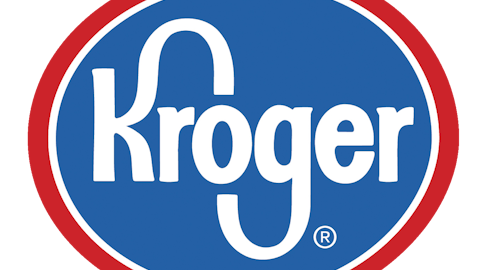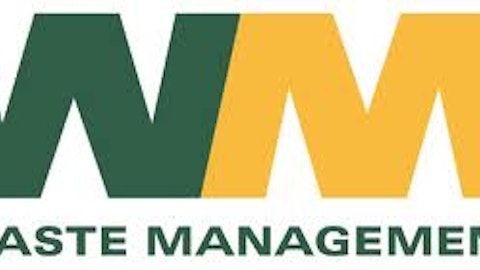Waste Management also has more one-sort recycling areas that allow customers in those districts to throw all of their recyclables into one container, which is sorted at a recycling plant. This has increased the number of participants recycling, and thus the volume of material that Waste Management can then turn around and sell on the wholesale market, diversifying revenues.
When it comes to trash, Waste Management is a better run company than its competitor, Republic Services. It is further along in its transition to natural gas fleets. Waste Management boasts more than 2000 CNG trucks, with over 16,000, 85% of their fleet, more on the slate to be converted.
Republic Services does have one advantage over Waste Management. The company currently pays out only half of its earnings in the form of a dividend, whereas Waste Management pays out 82%. This does give Republic Services an advantage if the economy were to slow down, as it wouldn’t be as at risk to cut its dividend for income investors.
Waste Management has also been using natural gas produced at its landfills to become the number one generator of renewable fuels, producing more units of energy from its natural gas mines than the entire amount generated from solar last year. Waste Management has been one green company.
Utilize unproductive space
The words Wal-Mart Stores, Inc. (NYSE:WMT) and solar energy don’t typically find themselves in the same sentence, but as it turns out, Wal-Mart Stores, Inc. (NYSE:WMT) is the largest owner of commercial solar power generation. Wal-Mart Stores, Inc. (NYSE:WMT) has over 200 of its rooftops of its 4,500 stores in the U.S. setup with solar panels and plans to increase this number going forward. Wal-Mart Stores, Inc. (NYSE:WMT) recently announced a deal with SolarCity to install nearly all of its California stores with solar panels.
Wal-Mart Stores, Inc. (NYSE:WMT)’s 4,300 rooftops that are currently unproductive in the U.S., and the retailing giant is taking steps to change that, and saving money in the long run. Wal-Mart Stores, Inc. (NYSE:WMT) and other retailers will be installing more of these solar installations as a way to decrease costs and improve margins. A Wal-Mart store that has a solar attachment can save nearly 50% of its daily energy cost, potentially saving the store thousands of dollars per year. This action by itself will not substantially move the needle at Wal-Mart, but it is the sum of these small actions that made Wal-Mart the retail giant it is today.
The 800 pound gorilla of retail makes its billions by selling large volumes of products with low margins. Reducing their electric bill will allow the retailer to reduce expenses and ultimately reward both customers and shareholders with decreased prices in the store, and greater capital available to shareholders at the end of the day
Foolish bottom line
All sectors of the economy have been turning over every rock trying to supplement their earnings. Well run companies are typically the first movers in these areas, and will lead their investors to meet their financial goals. Wal-Mart and Waste Management have been turning previously unproductive assets into energy, while IBM has been shifting its product mix to realize higher and higher profit margins. The creative decisions these management team tortoises have been making will reward shareholders for years to come.
Wes Patoka owns shares of International Business Machines. The Motley Fool recommends Republic Services and Waste Management. The Motley Fool owns shares of International Business Machines. and Waste Management. Wes is a member of The Motley Fool Blog Network — entries represent the personal opinion of the blogger and are not formally edited.
The article Paving the Way to Sustainable Earnings Growth originally appeared on Fool.com is written by Wes Patoka.
Copyright © 1995 – 2013 The Motley Fool, LLC. All rights reserved. The Motley Fool has a disclosure policy.





